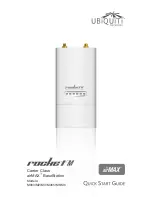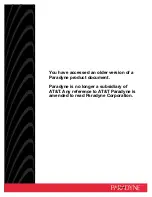
Avaya Inc. – Proprietary & Confidential.
Use pursuant to the terms of your signed agreement or Avaya policy.
13
Problems
Resolved
in
This
Release
Platform
8648GTS and 8648GTRS modules do not negotiate speed and duplex as expected once Customizable
Auto-negotiation Advertisements (CANA) has been used on to limit link speed on a port and is
subsequently disabled on that port. This issue is resolved (wi00518718)
When PCAP is enabled and disabled, a control bit in fast path was not cleared correctly. This results in
packets received on the port that had been monitored through PCAP being forwarded to the CP incorrectly
and potentially cause high CPU utilization. This issue is resolved (wi00564156)
In prior releases, a timing issue existed in single CPU systems where physical reseating of the CPU card
would result in a COP-SW Exception event to be copied to the CPU during switch recovery. To avoid this
scenario, the chassis should be power cycled rather than reseating the single CPU. (wi00508448)
Port based shaper functionality may be disabled in hardware for R/RS modules after a port state change.
This issue is resolved (wi00564813)
SNMP get failed on rcIpfixExporterStatsTable since the length field passed in the OID is not supported by
the agent code. This issue is resolved (wi00564237).
For tagged ports, the QoS queue mapping for Layer 3 packets received on R/RS modules has been
corrected to align with E-modules. (wi00518702).
In prior releases, a very rare scenario exists where the system monitor could potentially incorrectly detect
the tTrapD task to be in an infinite loop and initiate recovery action. This issue is resolved (wi00508402).
If ‘ctrl-C’ is entered at certain points in the boot up sequence the normal boot sequence is aborted and the
user is entered into the shell access level of the switch. Sending ‘ctrl-C’ no longer results in user access to
the shell level. (wi00675102).
TFTP packets egressing out of line card port are marked with dscp 0x30, instead of default value. This
issue is resolved (wi00564778).
Executing the 'show sys pluggable-optical-modules info' command no longer results in repeated GBIC
inserted messages being generated. (wi00564844).
PIM mroute flapping could potentially be encountered in networks configured with short timer values for
the multicast forward cache timeout. This was only encountered for multicast streams with low data rates
in MLT or SMLT topologies and was dependent on which link in the S/MLT the data stream was active.
Mroute flapping will no longer be encountered in this scenario. (wi00564358)
CLI/NNCLI
Executing the ‘show fulltech’ command in NNCLI mode in some configurations would previously lead to
unexpectedly high CPU utilization. Optimizations in the execution flow have now been made to minimize
the impact of running the show ‘fulltech’. (wi00564789).
IP
Deletions of VLAN IP did not previously remove the associated IP records in the HW. This could lead to
initial connectivity failure if the deleted VLAN IP address were re-used on a different device until an ARP
request was issued by the new device. This issue is resolved (wi00564233).
Routed ipv6 packets were previously dropped when ECMP was configured for IPv4. This issue is resolved
(wi00564341).














































